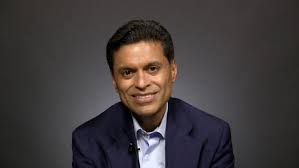
As NBC News’ Allison Linn says, the new plane is “receiving plenty of attention lately — but it’s not at all the kind of buzz the aircraft maker had been hoping for with an aircraft that carries such high hopes it was dubbed the ‘Dreamliner.’”
In an article highlighting similar problems with aircrafts historically, BBC News’ Rob Corp notes that, while their seriousness and impact can vary, such issues “can have a detrimental effect on an airliner’s popularity, reputation and sales.” A New York Times article on the 787’s issues echoes that perspective: “While problems are common with early models — including with the first Airbus A380, the Boeing 777 or even the first 747s — analysts say the issue could become a growing embarrassment for Boeing if travelers or airlines begin to lose confidence in the plane.” The company needs to move fast to solve these problems. According to The Wall Street Journal, the 787 and other Boeing models have already experienced “lengthy delays that have damaged Boeing’s credibility.”
Reputation Restored…
Under W. James McNerney Jr., who became CEO in 2006, Boeing has spent recent years improving the company’s reputation following a period of misconduct that “marked an all-time low for the company,” according to Businessweek. In addition to smart moves like “encouraging managers to talk more openly about Boeing’s severe ethical lapses,” McNerney was responsible for Boeing doing the “right thing” when it came to closely watched tax decision. McNerney’s work has earned the company the #30 spot on Fortune’s list of the World’s Most Admired Companies.
…But Experiencing Turbulence
While history suggests that Boeing will weather this crisis, today’s media environment makes things less certain. A video of smoke coming from a 787 in Japan, for example, has been broadcast widely. “Welcome to the era of social media, Boeing,” aerospace consultant Michel Merluzeau told the Times. “That sort of thing is going to be seen by millions of people.” While Boeing has wisely responded to the issues via social media, if the company can quickly resolve the 787’s problems, they may be forgotten just as fast. “Two years from now, no one will remember this,” Airfarewatchdog.com’s George Hobica says in another LA Times piece. “People still rode on ocean liners after the Titanic sank.









 Fareed Zakaria rose quickly into the rarefied strata of the prominent public intellectual after he authored a Newsweek cover story (“Why They Hate Us”) on the 9/11 attacks. He’s an extraordinarily prolific writer, hosts a television program, and makes frequent public appearances.
Fareed Zakaria rose quickly into the rarefied strata of the prominent public intellectual after he authored a Newsweek cover story (“Why They Hate Us”) on the 9/11 attacks. He’s an extraordinarily prolific writer, hosts a television program, and makes frequent public appearances.